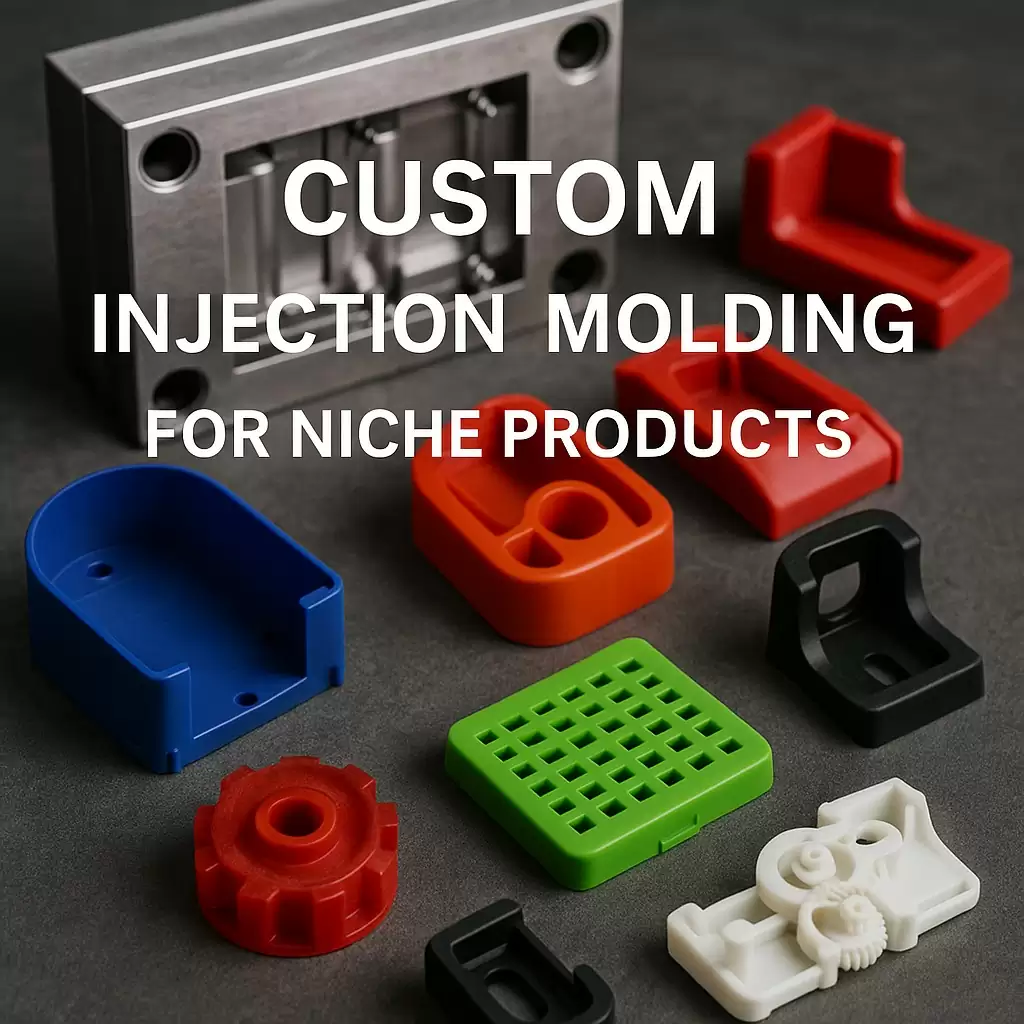Custom Plastic Injection Moulding Solutions for Niche Product Development
Custom Plastic Injection Moulding Solutions for Niche Product Development
Launching a niche product—a biotech cartridge, an artisan espresso tamper, or a limited-run gaming accessory—demands far more agility than mass-production programs. Volumes may start in the hundreds, regulatory paths can vary by market, and design pivots often happen late in the game. Custom plastic injection moulding bridges that gap, giving innovators the speed, material freedom, and unit-cost control they need to win specialized markets without tying up cash in oversized tooling or inventories.
1 | Why Customisation Beats Off-the-Shelf Options
| Challenge in Niche Markets | How Custom Moulding Solves It | Real-World Example |
|---|---|---|
| Small, unpredictable volumes | Soft aluminium or hybrid P20 tools (5 000 – 50 000 shots) | Limited-edition headphone housings run on a single-cavity bridge tool, then scaled if demand spikes |
| Unusual materials & textures | Any resin—from COC for micro-fluidics to glow-in-the-dark ABS | Premium bike grips over-moulded with scented TPE to stand out in crowded retail aisles |
| Late-stage design pivots | Steel-safe allowances, modular inserts, fast EDM tweaks | Gaming mouse shell refined three times after beta-tester feedback—without new tooling |
| Tight launch timelines | 48-hour DFM, aluminium tools in 3-4 weeks, T-samples in < 25 days | Cosmetic brand hit a seasonal window with custom pump actuators delivered in weeks |
2 | Toolkit for Tailored Injection Moulding
-
Soft-Tooling Strategy
• Aluminium 7075 or 6082 cores for rapid T-samples (≤ 3 weeks)
• Hybrid P20 inserts only where wear or glass-fill demands -
Material Matchmaking
• Bio-PP and rPET for eco-labels
• Medical-grade PC, CO-Copolymers, or LSR for health-tech devices -
Insert & Over-Mould Design
• Metal threads, RFID chips, or textile inlays placed robotically inside the cavity
• Multi-shot presses create dual-durometer seals without separate adhesive steps -
Scientific Moulding & DOE
• Cavity-pressure sensors lock CpK ≥ 1.67 even at pilot volumes
• Process window easily transferred to a multi-cavity production tool if orders boom
3 | Cost Control Without Compromising Performance
| Cost Lever | Typical Saving | Safeguard |
|---|---|---|
| Family tools (two SKUs in one mould) | –15 % tooling cost | Moldflow balance, hot-runner valve timing |
| Regrind runners up to 15 % | –4 % resin spend | Moisture & IV monitoring to keep properties stable |
| Talc or glass fibres in PP | –20 % versus PC/ABS while boosting stiffness | Drop-test & chemical-soak validation |
4 | Validation Fast-Track for Niche Products
-
DFM + Gate Review (48 h)
-
Aluminium Tool Cut (2-3 wks)
-
T-1 Shots + Short-Shot Study (day 18-20)
-
Steel-Safe Adjustment (≤ 48 h)
-
Pilot Lot 500 pcs (day 25-30) for regulatory, influencer, or crowdfunding fulfilment
-
Scale Decision — duplicate inserts or step up to hardened steel as orders firm up
5 | Internal Links for Further Exploration
6 | Key Takeaways
-
Flexibility first: Soft-tooling, insert modularity, and quick EDM edits keep iteration costs tiny.
-
Material freedom: From antimicrobial PP to carbon-fibre PA, custom moulding offers virtually any performance envelope.
-
Speed to validation: Aluminium tools paired with scientific moulding ship production-grade parts in a month, not a quarter.
Ready to turn your niche concept into shelf-ready reality? Upload your CAD files to TaiwanMoldMaker.com and receive a 48-hour DFM report plus a quotation tailored for pilot, bridge, or full-scale custom plastic injection moulding.









